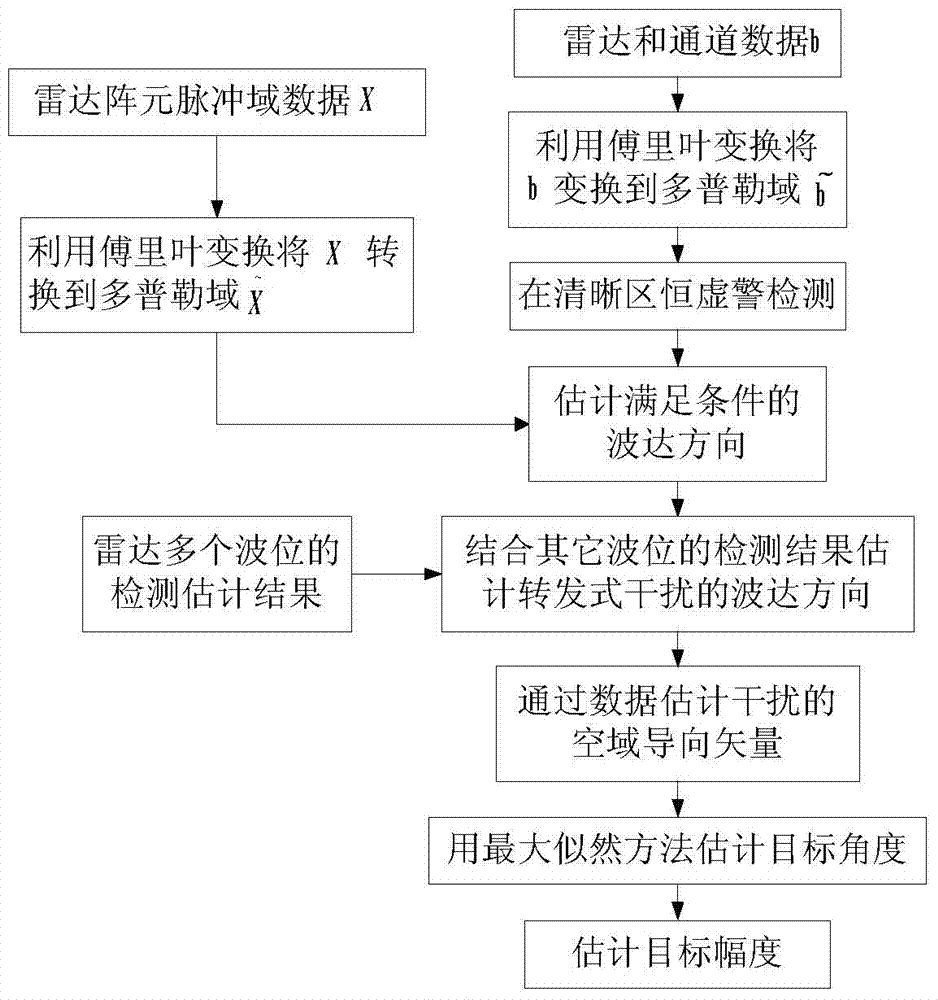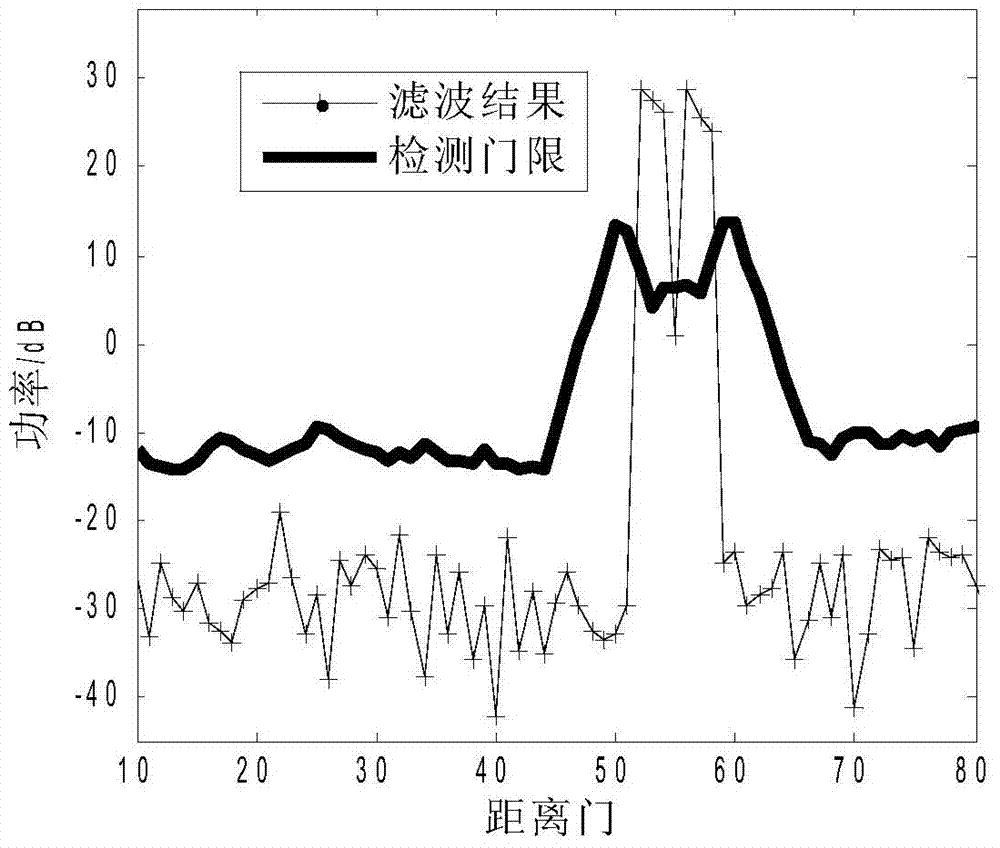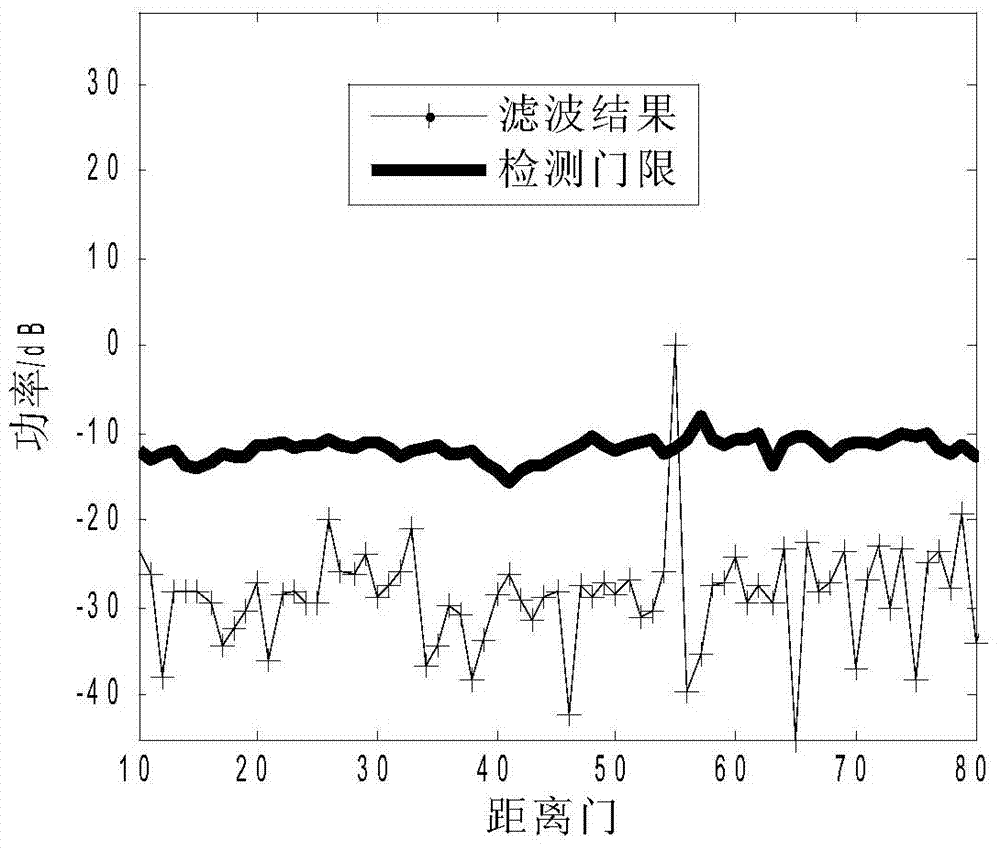Airborne radar anti-forwarding type interference method based on adaptive beamforming
An adaptive beam, airborne radar technology, used in radio wave measurement systems, instruments, etc., can solve the problem of not being able to overcome the constant false alarm rate detection threshold, unable to resist main lobe interference, and not fundamentally suppressing deception interference, etc. question
- Summary
- Abstract
- Description
- Claims
- Application Information
AI Technical Summary
Problems solved by technology
Method used
Image
Examples
Embodiment Construction
[0043] The present invention will be further described below in conjunction with accompanying drawing:
[0044] refer to figure 1 , is a flow chart of the airborne radar anti-transfer jamming method based on adaptive beamforming of the present invention. In the embodiment of the present invention, the receiving array of the airborne radar is a uniform linear array composed of M array elements, where M is a natural number greater than 1. The distance between the M array elements of the airborne radar is d, and the number of pulses received by the airborne radar in a coherent processing interval is P. The airborne radar anti-retransmission jamming method based on adaptive beamforming of the present invention comprises the following steps:
[0045] S1: The airborne radar is used to transmit signals in multiple directions, and the receiving array of the airborne radar receives corresponding echo signals in corresponding directions. Specifically, the wavelength of the signal emi...
PUM
 Login to View More
Login to View More Abstract
Description
Claims
Application Information
 Login to View More
Login to View More - R&D
- Intellectual Property
- Life Sciences
- Materials
- Tech Scout
- Unparalleled Data Quality
- Higher Quality Content
- 60% Fewer Hallucinations
Browse by: Latest US Patents, China's latest patents, Technical Efficacy Thesaurus, Application Domain, Technology Topic, Popular Technical Reports.
© 2025 PatSnap. All rights reserved.Legal|Privacy policy|Modern Slavery Act Transparency Statement|Sitemap|About US| Contact US: help@patsnap.com



